Former British Army warrant officer Steve, from Southampton, was diagnosed with a meningioma in May 2017, having previously been told his debilitating headaches were caused by a sinus infection. He had three operations and radiotherapy during which time he and wife Becky welcomed their first child. The 42-year-old who has three children, lives with a shunt in his head. He wants to share his experience as a story of hope for brain tumour patients living with the disease.
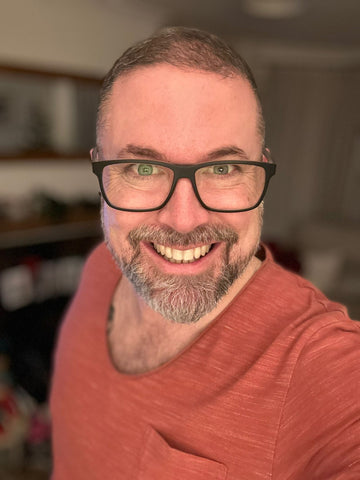
Steve tells his story…
A lot has changed since my brain tumour diagnosis in 2017. I got married, graduated with a degree in leadership and management with Northumbria University in 2019 and left the military after 23 years. My wife, Becky and I have welcomed two children, despite my fears that treatment would affect my fertility and I’m relieved this wasn’t the case.
Achieving these goals has been extra special knowing all that I’ve gone through to be where I am today.
Becky has been my rock throughout the difficult times and nothing was going to stop us tying the knot – not even a brain tumour. We got married in August 2017, just 10 days after my trio of emergency surgeries. My scar was my war wound and, though I felt very fatigued from my operation, our marriage was a massive positive during a very tough time.
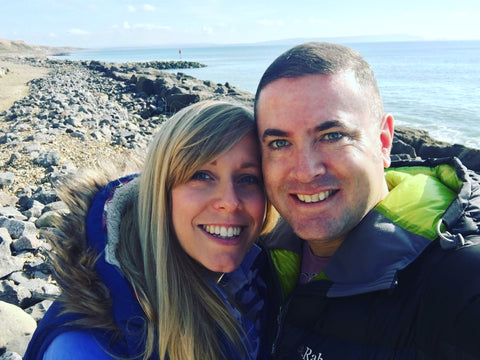
Remarkably, I live with the same brain tumour as my mum: a meningioma. Mum had experienced black-outs throughout my childhood, eventually requiring surgery to remove a massive tumour. Fortunately, she’s had the all-clear for years.
I’ve not let the disease dictate my life and although ‘getting a brain tumour’ wasn’t on my five-year plan, I’ve managed to live alongside the disease.
I made the decision to step away from the army where I worked as a warrant officer, after more than two decades which was always part of my life-plan; making the transition into the corporate world in December 2021. It’s great to be working as a site manager, managing 90 people comes with its challenges but nothing compared to treatment for a brain tumour.
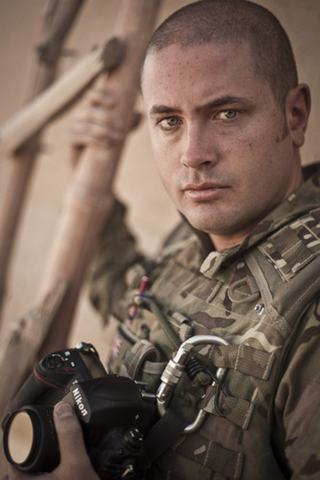
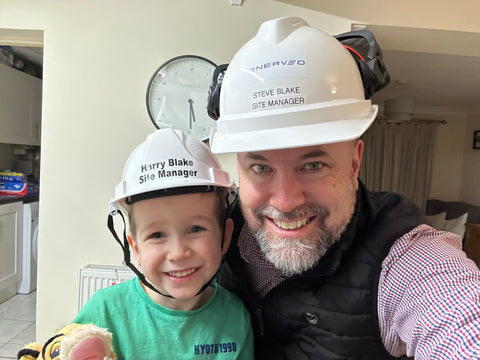
It’s amazing to think of all I’ve achieved since my diagnosis and I would like to give hope to other patients – that life can get better after being diagnosed with a brain tumour.
It all started in February 2016, while I was working as an army photographer, based at RAF Halton in Aylesbury. I suffered from frequent headaches and blurry vision. The headaches didn’t seem to get better, although my vision normalised after a while. I saw a doctor, only to be told it was probably a sinus infection, and was prescribed nose-sprays, decongestants and antibiotics.
The medication didn’t work and over many months I saw several different doctors who didn’t seem to know what was wrong with me. Medically, things came to a head in May 2017, when I finally had enough of the constant headaches. I was referred for a scan and the next day a military doctor told me that there was something growing in my head that shouldn’t be there.
The hardest part was telling my son Joseph, who was just 13. His only experience of brain tumours was seeing a friend lose his mum to a particularly aggressive form of the disease.
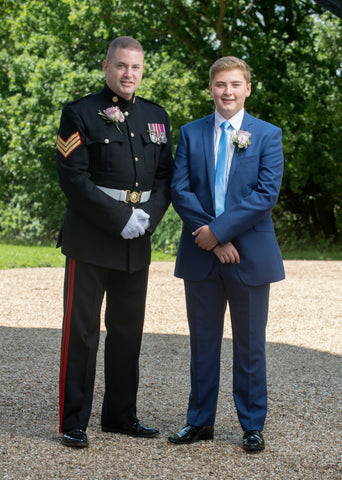
A few weeks later I had a follow-up appointment at the John Radcliffe Hospital in Oxford, where I was diagnosed with a meningioma. It was the best-case scenario as the tumour was unlikely to become cancerous, so the doctors didn’t recommend immediate treatment. The brain tumour was on the back of the sinus canal, which explained the sinus symptoms I had experienced.

Due to the location of my tumour, there was a dangerous amount of fluid build-up on my brain. I had three surgeries at the John Radcliffe to drain the fluid, and the pressure was on to recover in time for my wedding a few days later.
Becky and I were married at Highfield Park in Hook and it was a very special day, with our family and friends around us. I was still pretty tender but managed to stay up ‘til midnight, before having to rest.
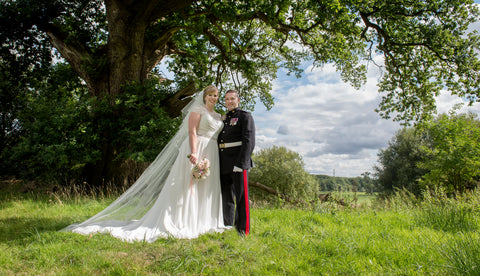
I returned to my army work in January 2018 and it was great to be back with my team and in uniform. It was important for me to regain a sense of routine after such a turbulent couple of years.
The normality was short-lived, however, as after a follow-up scan in May 2018, my doctor was concerned that my tumour had grown more than he’d anticipated, and advised I had treatment. I had a three-day course of radiotherapy at Southampton General Hospital and while the radiotherapy was painless and non-invasive, the effects of the steroids were horrendous. I gained weight and struggled to sleep more than three hours at night.
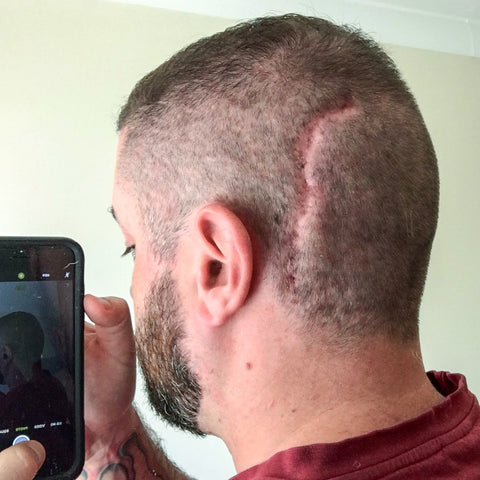
Becky and I were trying for a baby and we were worried the radiotherapy would affect my fertility. We were told that this would be extremely unlikely and a few months later we were delighted to discover that Becky was pregnant with our son, Harry.
When Harry was two, Becky and I talked about having another child and in September 2022, Charlotte was born. We’re open with Harry about my brain tumour, he’s at an age where he’s starting to understand things a bit more. He’s learnt as he grows up to be gentle if we rough and tumble. For Charlotte, she’s still very young.
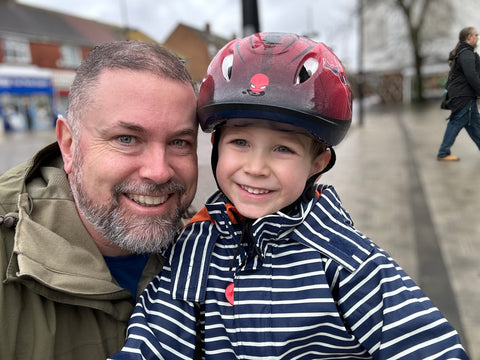
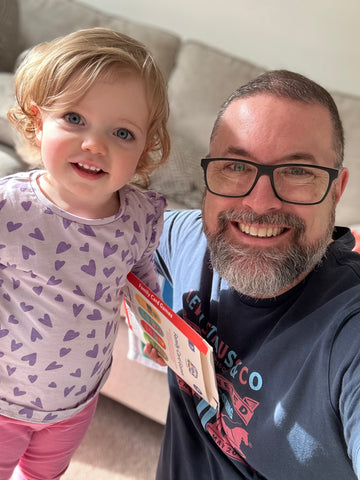
Although I feel fatigue and have noticed a dip in my energy levels because of treatment, I have a determination to demonstrate resilience and compassion to my children.
In January 2024, I had my first scan in two years which showed no new activity with the remaining tumour, in fact it showed a 5mm reduction in size which is incredible. I’ll now have a scan in three years and that will take me up to 10 years post-surgery.
It’s great to have these milestones but the wait is often anxious. I sometimes get a pulsing and dull ache in my head, but these are normal for me. It’s when I have different pains and sensations that fuel uncertainty. I question if it’s a headache or the tumour growing.
I’ve enjoyed fundraising for the charity Brain Tumour Research and I’m proud to have raised more than £11,200. My last challenge was a 25km hike along Dorset’s stunning Jurassic coastline with my close friend Ash and I’ve also participated in the charity’s Walk of Hope campaign.
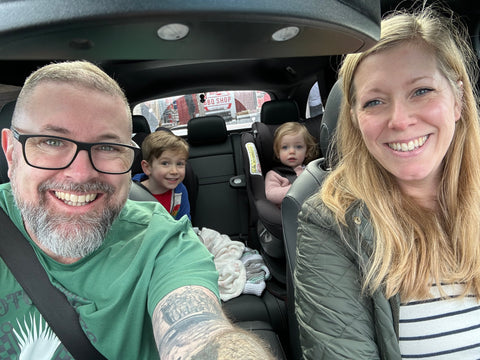
If you are experiencing or having concern with medical health then don’t accept the first answer. That’s the only way I found out something was wrong. Told I had a sinus infection, but it wasn’t that.
My journey has come with its ups and downs. So far every update has been positive but there is still so much work to be done to understand brain tumours and bring research into the disease to the standard of other cancers.
Steve Blake
March 2024
One in three people in the UK knows someone affected by a brain tumour. This disease is indiscriminate; it can affect anyone at any age. What’s more, brain tumours continue to kill more children and adults under the age of 40 than any other cancer yet, to date, just 1% of the national spend on cancer research has been allocated to this devastating disease since records began in 2002.
Brain Tumour Research is determined to change this.
If you have been touched by Steve's story, you may like to make a donation via https://braintumourresearch.org/donate or leave a gift in your will via www.braintumourresearch.org/legacy.
Together we will find a cure.

